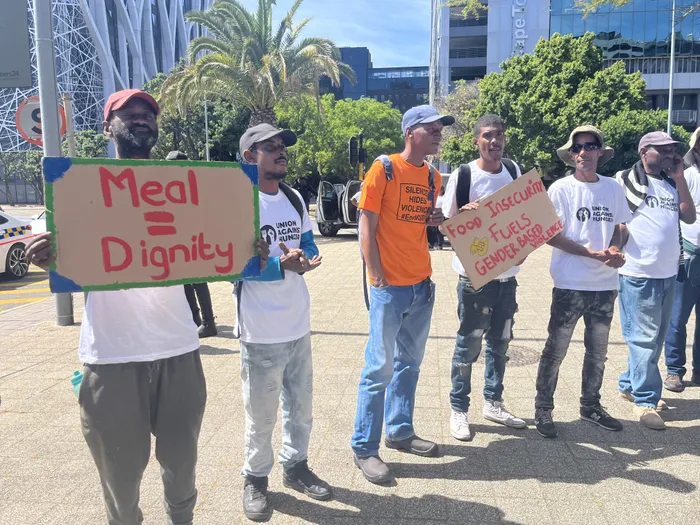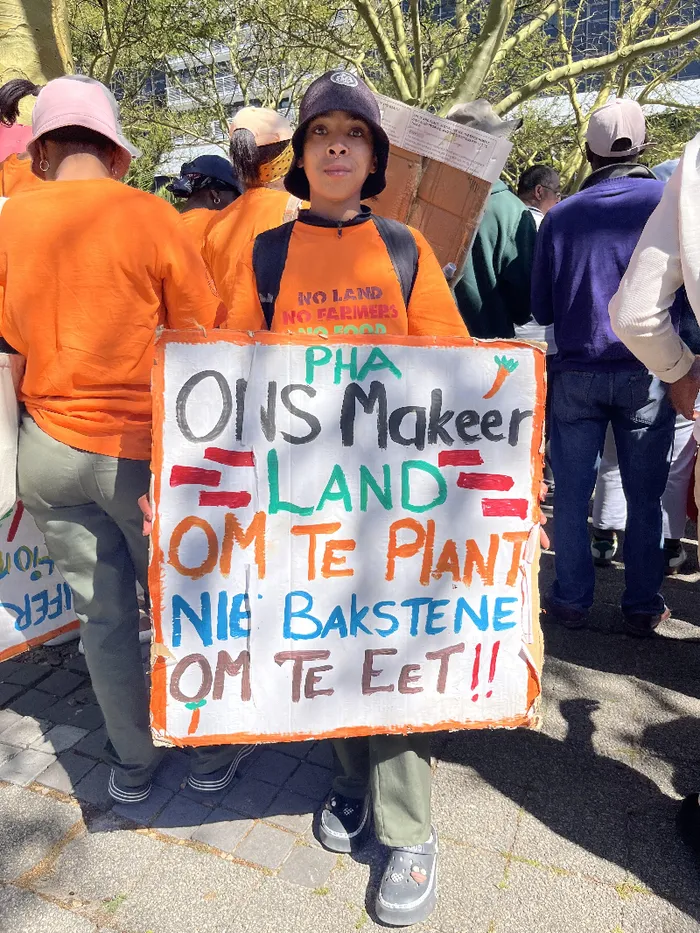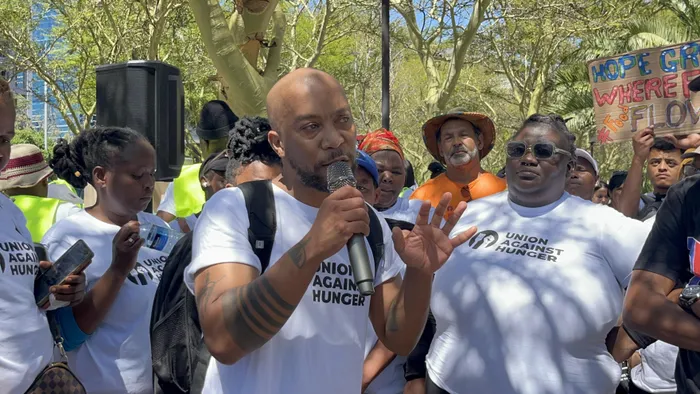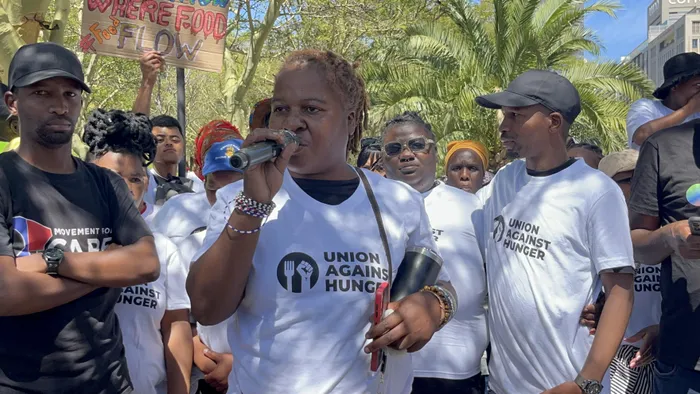Community activists call for urgent action to end hunger in South Africa

From the Callas Foundation's community kitchens - Tino Abrahams, from Valhala Park, Ashwin Solomons, Llewellyn Morkel, both from Bonteheuwel, Clyde Beukman, Cameron John, both from Bridgetown.
Image: Fouzia van der Fort
Community activists calling for an end to hunger say they plan to take their memorandum directly to the home of former Public Protector Thuli Madonsela.
This follows her and President Cyril Ramaphosa’s failure to accept the document during the 7th Social Justice Conference at the Cape Town International Convention Centre (CTICC) on Friday, October 17, where the president delivered a speech on social justice, food security, and peace.
Nkosikhona Swartbooi, community activist and coordinator of the Movement for Collective Action and Racial Equity (CARE), said that they would negotiate next steps, either another meeting should be arranged or they would deliver it to Ms Madonsela's home.
"Today, we are here in our hundreds, and when we do come back and respond to this insult. We shall respond in our thousands," he said.
He said that their absence showed activists the "middle finger", without any empathy towards their struggle.

Bronwyn Abrahams, from Philippi, wants land to plant food to end hunger.
Image: Fouzia van der Fort
Several community kitchens, from across Cape Town, said that they have been feeding their neighbours from their pockets, without help from the government.
They partnered with Union Against Hunger (UAH), the Movement for CARE and other community groups to demand immediate action from the government to end hunger.
In their memorandum they demand the end of hunger; a national plan for food sovereignty and community-led food systems; and accountability for policies that deepen poverty and inequality.

Sean Samson, from the Alcardo Andrews Foundation, in Hanover Park, said that their community kitchen serves 1 000 meals daily.
Image: Fouzia van der Fort
Sean Samson, from the Alcardo Andrews Foundation, in Hanover Park, said that their community kitchen serves 1 000 meals a day, amidst gang violence and each year assists up to 100 recipients with gender based violence cases.
"Our people are surviving on very little. The government grant is not enough, the pension is not enough. We have a low minimum wage," he said.
Mr Samson stated that people could not survive on what they were given, and that no one was coming forward to help.
"Private citizens can't do it all. Families can't do it all. There needs to be a permanent social relief system to help our community," he said.
Neliswa Louw, from the Philippi area farming, is fighting to keep their farming lands available to farm and keep farm workers employed.
"Keep our farming lands from rich developers, who want to build houses there for rich people. We are trying to save our land for farm workers. So that farming can continue; so that people in our area of poverty can still work on farming," she said.
Nazeer Sonday, founder and coordinator of the Philippi Horticultural Area Food and Farming Campaign, said as part of a youth farming training activism programme, participants attended the protest.

Matilda Tsitsi Fakazi, founder of InterVisionary, a non-profit organisation in Masiphumelele, operates a community kitchen and food garden to combat food insecurity.
Image: Fouzia van der Fort
Matilda Tsitsi Fakazi, founder of InterVisionary, a non-profit organisation in Masiphumelele, operates a community kitchen and food garden to combat food insecurity.
She said that as community workers they are working hard but could not keep feeding their community from their pockets and that the government chooses to ignore their hard work.
"We learned to grow our food but there is no response from the department of agriculture to support community kitchens. We want to grow our own food so that we know what ingredients are there. We want to used the wisdom that we have to grow food and feed our people," she said.
Yandiswa Mazwana, from Masi Creative Hub in Masiphumelele, said that there were more than enough resources to feed fairly and equally.
Tony Ehrenreich, former trade union leader, said that it was important for South Africans to unite in their struggle to bring down the prices of food and end hunger in the country.
"Our country is wealthy enough for all of our people. There is enough to feed all of our people but if you look in Cape Town, you can see, the reason we don't have food is because we have R5 million houses and R7 million cars. That money must be spent on improving the lives of our people and not few people richer every day," he said.